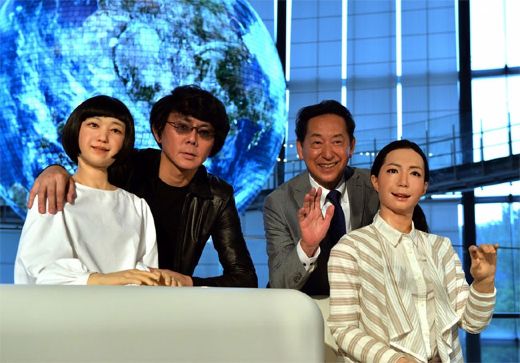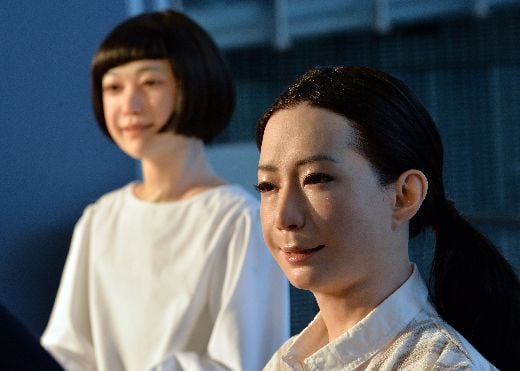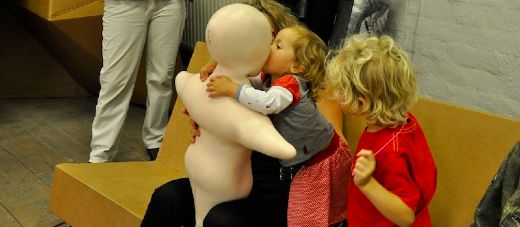
The fact that the Japanese love robots is well-known. The nation of 127 million people currently employs over a quarter million robots workers, more than any other country in the world, and the number is expected to quadruple in the next 15 years. So far, most of the robots have been built for the industrial sector and therefore bear no resemblance to humans. But if some scientists have their way, the days of androids - robots that look and act like humans, are not too far away.
The front runner in this race is Professor Hiroshi Ishiguro who has spent over 20 years trying to build human-like machines. Over the years, the Osaka University Roboticist has released numerous prototypes. However, it is his latest exhibition 'Android: What is Human', which opened at Tokyo's National Museum of Emerging Science and Innovation (Miraikan), on Tuesday June 24th, that is creating a stir, both nationally and internationally.

The team of robots being exhibited include two beautiful females - the adult Otonaroid (Otona means adult in Japanese) and the juvenile Kodomoroid (Kodomo means child in Japanese) as well as a tiny cuddly infant-like robot called Telenoid. All three have a specific purpose. The teleoperated Otonaroid will act as the museum's robot science communicator for the duration of the exhibition. Her duties include having one-on-one conversations with visitors, which Ishighuro believes will help people become more comfortable around androids.
Kodomoroid who is being touted as the world's first robo newscaster can skillfully recite the latest news gathered from around the world via an internet feed. The young girl can also speak several languages in a variety of tones ranging from a girly squeal to a deep male voice. As for Telenoid? built to behave like a minimalist human, he resembles a cuddly baby that visitors can pick up for a quick hug and even, have a short conversation with.

During the press conference held to introduce the robots, the two older ones behaved just like humans, moving their beautiful pink lips in synch with the audio, blinking their eyes and tilting their heads from side to side. While neither rose from their respective chairs, they did move their hands expressively. Kodomoroid read the news without a single mistake and even managed to pull-off some difficult tongue twisters flawlessly. Science communicator Otonroid slipped a little by not responding when asked to introduce herself. However, upon being rebooted she quickly redeemed herself by attributing her silence to 'nervousness'.
As you can imagine, building these robots is not for the faint of heart. Android researchers begin by making a complete plaster cast of a human model, right down to the teeth. They then spend hundreds of hours molding and painting the features so that the robot closely resembles the human it is being modeled after. That, is the easy part! Then starts the arduous process of installing the complex machinery and countless hours of programing so that the androids not only replicate human gestures and facial expressions, but also, think like them. It is no wonder that most scientists gravitate towards building 'easier' industrial robots.
This is not the first time the professor has impressed the world with his human-like robots. His previous creations included android actors that have starred in plays alongside humans and even a replica of himself that he often sends on international lecture tours.
Resources: mashable.com, news.yahoo.com,upi.com, ibtimes.co.uk